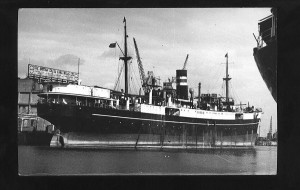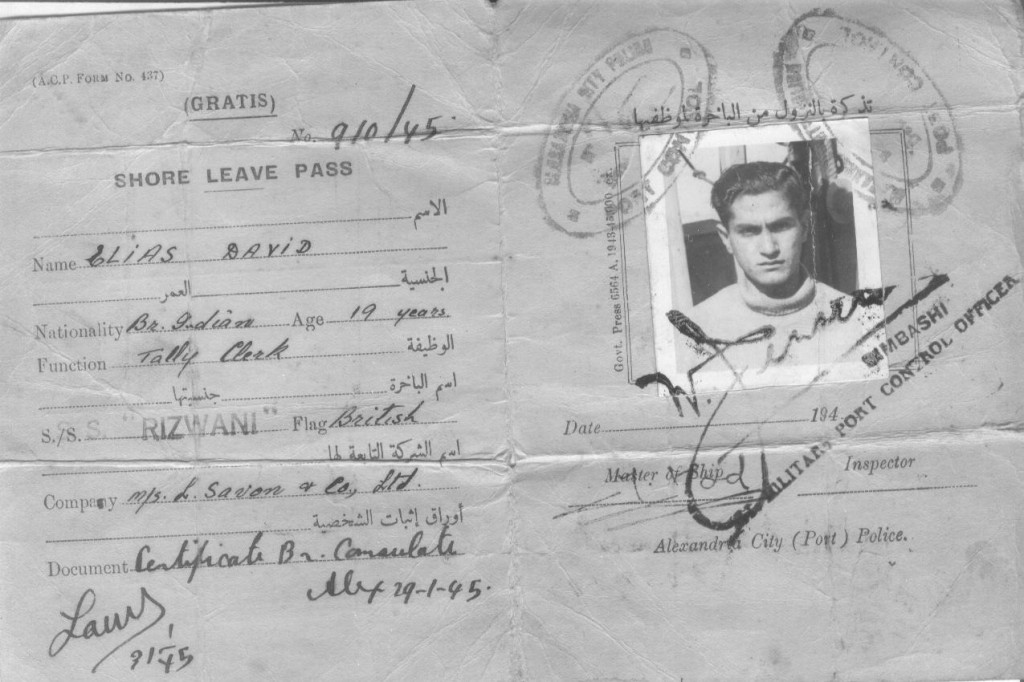Haim Watzman

He’d been on the boat for three weeks, sailing from India’s west coast across the Arabian Sea, into the Gulf of Aden, through the Red Sea and the Suez Canal to the cosmopolitan Mediterranean port. Apparently there were no stops along the way — on his pay slip, nothing is listed under “cash advances during the voyage.” Or perhaps there were and he chose not to disembark. The Rizwani, merchant carrier of the Mogul Line, Bombay, was built in Glasgow in 1930 expressly to ferry Muslim pilgrims to Mecca. While the pilgrimage season had been the previous month, the ship might have stopped at an Arabian port, and Tally Clerk Levy might have thought it best to stay on board.
 After being cooped up on what was, by merchant marine standards, a small boat, he was probably eager to get off and explore. The port he’d landed in had a reputation for offering exotic adventures and pleasures that would not get reported home. Bing Crosby was on the radio that day, singing “Ac-Cent-Tchu-Ate the Positive” with the Andrews Sisters. The good-times, Father Divine-inspired prosperity gospel sermon had hit Billboard’s charts: “You’ve got to ac-cent-tchu-ate the positive/E-li-minate the negative/Latch on to the affirmative/Don’t mess with Mister In-Between.”
After being cooped up on what was, by merchant marine standards, a small boat, he was probably eager to get off and explore. The port he’d landed in had a reputation for offering exotic adventures and pleasures that would not get reported home. Bing Crosby was on the radio that day, singing “Ac-Cent-Tchu-Ate the Positive” with the Andrews Sisters. The good-times, Father Divine-inspired prosperity gospel sermon had hit Billboard’s charts: “You’ve got to ac-cent-tchu-ate the positive/E-li-minate the negative/Latch on to the affirmative/Don’t mess with Mister In-Between.”





